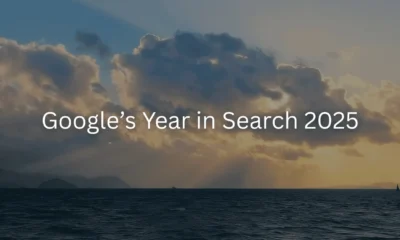Google: Embedded Videos Have Same SEO Value as Uploaded Content

Google’s John Mueller says there’s no difference, when it comes to SEO, between embedded videos and videos natively uploaded to a website.
This topic came up more than once during the Google Search Central SEO office-hours on January 29.
Saidul Hoque, SEO Manager at RealClicks, started by asking a series of questions about video SEO. One of those questions involves Google’s perception of embedded content versus self-hosted content.
Hoque asks: “Is there any difference between embedding and uploading a video from an SEO point of view?”
Mueller’s answer is clear and straightforward, but clashes with more commonly held beliefs around SEO and embedded videos.
An SEO named Robb Young brings this up minutes later and Mueller elaborates on how Google currently surfaces video results in search.
Google’s John Mueller on Video SEO
In response to the question of whether it’s better to host your own videos instead of embedding them from other sources, Mueller says Google treats both the same in terms of SEO.
Mueller brings up the fact that when sites host their own videos it’s common for them to be served from a separate CDN (content delivery network). Technically that’s a separate website and not dissimilar from an embedded video.
In the end the main concerns here are getting the content indexed properly and ensuring users are happy with the experience. If both of those concerns are satisfied then everything is fine from Google’s point of view.
“It’s essentially the same. It’s very common that you have a separate CDN (content delivery network) for videos, for example, and technically that’s a separate website. From our point of view if that works for your users, if your content is properly accessible for indexing then that’s perfectly fine.”
Contrary to Popular Belief…
After Mueller provides the above response, a related question comes up minutes later.
Robb Young mentions to Mueller there’s a common belief that hosting your own videos is better as it allows your pages to show up when the video is searched for. Whereas if the site is embedding videos from YouTube, then YouTube would show up as the source for the content.
“Is that not still the case?” Young asks.
This is where we get our first “it depends” from Mueller this week. He says Google could either return the YouTube landing page in search results, or return the web page where the video is embedded
If the page where the video is embedded contains more information then Google may serve it over the YouTube page as it would be considered more useful to searchers.
On the other hand, if the YouTube landing page has more ranking signals and more relevant information for people, then that’s the one that will be shown in search.
It can happen that Google serves the YouTube page over a page with an embedded video, but it’s not automatically the case.
“It depends. With YouTube you have two video landing pages. You have the landing page on youtube and you have the landing page on your site. We have to figure out which one of these pages to show and it can happen that we show your site as the video result landing page just because we have more information there perhaps.
It can also be that we show the YouTube landing page because we have more signals or more information there. So that’s something where it’s not automatically the case that we would show the YouTube landing page.
Some other video platforms have their own landing pages that they create automatically, some video hosting platforms don’t do that at all, essentially that’s kind of up to you there.”
Hear the full discussion in the video below:

![How AEO Will Impact Your Business's Google Visibility in 2026 Why Your Small Business’s Google Visibility in 2026 Depends on AEO [Webinar]](https://articles.entireweb.com/wp-content/uploads/2026/01/How-AEO-Will-Impact-Your-Businesss-Google-Visibility-in-2026-400x240.png)
![How AEO Will Impact Your Business's Google Visibility in 2026 Why Your Small Business’s Google Visibility in 2026 Depends on AEO [Webinar]](https://articles.entireweb.com/wp-content/uploads/2026/01/How-AEO-Will-Impact-Your-Businesss-Google-Visibility-in-2026-80x80.png)















